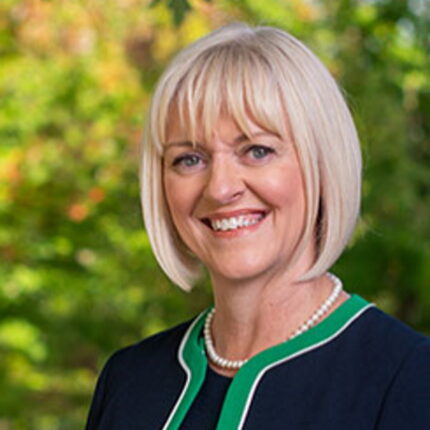It goes without saying that the past year has been an incredibly tough one.
The pandemic has dominated the decision-making of and interactions between universities and students’ unions, but it has also provided the backdrop for renewed and impassioned debates on shared challenges that existed before Covid-19 – over issues like mental health and wellbeing, equality and diversity, and value for money.
When differences emerge, we take the view that university and student leaders should seek to tackle them head-on – and that it’s honesty, transparency, and robust debate that can forge a partnership that works.
Constructive challenge
Students’ unions exist to represent the interests of their members, and are often keen to see rapid change – so elected officers must at times challenge the decisions, priorities and thinking of university leadership.
At the same time, universities have a range of responsibilities and stakeholders and have to operate in a way that has the long term in mind. That sometimes means pointing out why something can’t be done or prioritised.
Outside of a pandemic there’s usually space and time to discuss those differences. But when Covid-19 arrived – with intense pressures to respond and react quickly – we were unsure how this might affect the relationship at a time when we knew difficult decisions would have to be made.
Would disagreements disrupt our planning? Could the issues that the pandemic brought to the fore, and which students were raising with student leaders, make it even more difficult for us to navigate the challenges?
Weathering the storm
In response, together we proactively created spaces to enable critical dialogue, encouraged those difficult conversations, made room for disagreement and, ultimately, co-created solutions.
This is not to say that relationships between the university and the two SUs recognised at Exeter have been cosy, but we have recognised that to be effective, and to create change that is mutually beneficial to our students and colleagues, universities need to hear and respond to the student voice.
Issues on which we worked together have included rent strikes, tuition fee disputes, creating and adapting our “No Detriment” and “No Disadvantage” policies, providing Covid-19 safe in-person activities, reimagining graduation, our response to the Black Lives Matter movement, creating our “Festival of Discovery”, working to support women’s safety, and even the discovery and detonation of an unexploded WWII bomb on the edge of our campus. Our common denominator through each of these challenges has been constructive collaboration and being open to challenge.
Good decisions in the student interest are always about fusing a deep understanding of the student condition in all its diversity, and an understanding of the complexity of the modern university. In the past we have both seen university leaders oversimplify “what students need” and we’ve seen student leaders imagine that fixing a problem is simpler for senior people than it really is.
In our view, when university leaders are interested in and curious about the student experience and student leaders are interested in and try to understand the perspective of university leaders, better decision making emerges.
Partnership in action
Student leaders are often advised to “meet students where they’re at” in order to benefit from true insight into the student experience. But how often do university leaders meet student officers “where they’re at”?
Putting hierarchies to one side to find comfortable, often informal, spaces for student officers and university leaders to talk has helped. It has meant allowing both student and university leaders to be themselves, giving space to share and for the expression of frustration and hearing anger, whilst recognising that public positions may still differ, and understanding why that’s often a sign of a healthy, rather than dysfunctional, culture.
Student leaders have joined university meetings at all levels, including Covid-19 response and policy-making groups, bringing insight to decision-making and co-creating solutions. Across the sector the pre-pandemic tendency was to keep student leaders on committees but at arm’s length from management conversations. Why?
And university leaders have joined “town hall” and other SU organised meetings to engage directly with students and have often challenging questions put to them by students. Across the sector the pre-pandemic tendency was to assume that student leaders should do the engagement with students. Why?
Assessment and academic mitigation
It’s the issues that matter. Early on, we developed our “No Detriment” policy together, carefully integrating duties and concerns surrounding the fairness and integrity of the Exeter award while providing a “safety net” to support students through their end of year assessments. Empathy and understanding on both sides helped accelerate the process.
Later, student officers brought the concerns and experiences of students to inform the university’s proactive position on rent – directly influencing decision–making on rent reduction and refunds and working together to encourage purpose built student accommodation providers to adopt similar positions.
Working together has also brought to the surface a whole host of other concerns including loneliness, access to facilities, and even the food on offer in halls of residence. And other important work has continued – our student leaders have for example consistently advocated for harm-minimisation and welfare-first approaches to wellbeing, and the university has now introduced changes that reflect these approaches.
Student voice or off-stage hecklers?
There are some that say that student voice is possible without the need for elections or separate organisations. It is true that a “type” of voice can be heard in this way – but for us it is the authentic dialogue of partners that matters, not merely surveying or researching students’ views.
If there’s a real partnership, student leaders sometimes need to raise issues at a time and a pace that universities wouldn’t always have chosen, and have to say things that, given a choice, universities wouldn’t always have said out loud. Accepting that kind of discomfort – and creating relationships “backstage” that find constructive ways through those kinds of conflicts – are for us central to improving the student experience.













